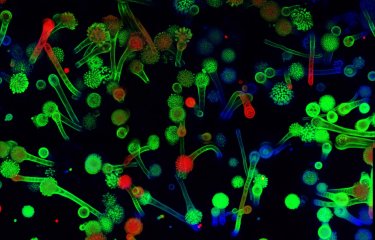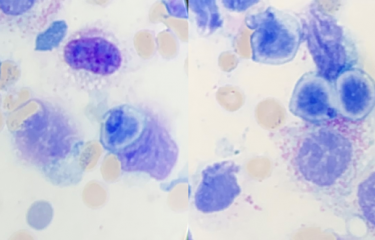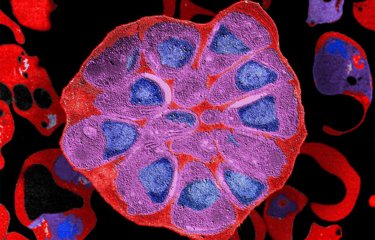Sebastian Baumgarten is a scientist with a fascination for marine and molecular biology, and more recently the huge potential of bioinformatics. At the Institut Pasteur, his research focuses on the infectious agent responsible for malaria. Driven by insatiable curiosity and a desire to understand the mechanisms used by organisms to adapt to climate change, his career brought him to Paris, where he found a dynamic campus brimming with expertise and collaborative possibilities.
Exploring ecosystems with the family motorhome
Sebastian grew up in southern Germany. His parents were both teachers – his father taught biology and his mother languages. From a very young age, he wanted to become a marine biologist.

Even at primary school I was absolutely certain that I wanted to be an oceanographer and marine biologist.
He developed his passion for the seas during family holidays exploring France in his parents' motorhome. His dad would teach him about ecosystems on the beach. On the foreshore, as the tide went out and left shallow pools, the two would observe the microcosms inhabited by myriad creatures. After these gripping encounters with nature as a child, it was only natural that he dreamed of becoming an oceanographer – that way he could spend the rest of his life on holiday!
Marine biology expeditions in the Arctic, Patagonia and Saudi Arabia
After his studies, Sebastian went on several marine biology research missions, including to the Arctic and Patagonia. He trained as a scientific diver at the Alfred Wegener Institute for Polar and Marine Research (AWI) in Germany, before completing a PhD at the KAUST Red Sea Research Center in Saudi Arabia. His research explored the symbiosis between corals and dinoflagellates, microalgae essential to their survival. He studied the impact of climate change on this fragile relationship.

That was when I swapped my diving equipment for a computer keyboard, figuratively diving into the genome of corals and their intracellular symbiotic algae.
His own lab to study the malaria agent in the context of climate change
Sebastian's bioinformatics skills led to him joining Professor Artur Scherf's team at the Institut Pasteur in 2016. He turned his attention to RNA methylation in Plasmodium, the parasite responsible for malaria. Since 2023, Sebastian has led his own research group, studying the heterogeneity of Plasmodium ribosomes and their adaptation to different environments. The malaria infectious agent has an amazing ability to adapt to its host: it "metamorphoses" as it is transmitted from mosquitoes to humans.
"The more I learn about this parasite, the more it fascinates me. Every day I delve into the unknown in the lab, always hoping that our research might benefit those most affected by malaria."
A Parisian campus with a global outlook
Sebastian sees the Institut Pasteur as an outstanding environment for infectious disease research. He appreciates the countless opportunities for interdisciplinary collaboration in France and at international level, as well as the core facilities on campus that enable him to make real headway with his research.
As well as his own research, Sebastian is working to strengthen ties between the Institut Pasteur and the EMBL -European Molecular Biology Laboratory at Pasteur. He coordinates calls for proposals and helps foster links between scientists at the two institutions with the aim of sharing expertise and promoting synergies.
Key dates in Sebastian's career





